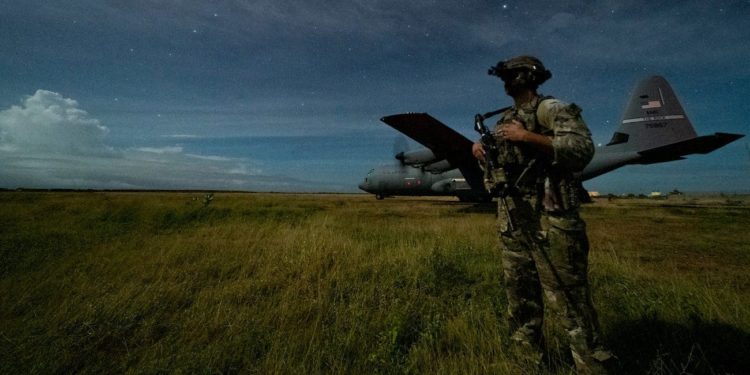But the U.S. is doing “very little” to counter those near-peer competitors in Africa, according to John Black, a retired Special Forces warrant officer with extensive experience in Africa.
“The Chinese are buying up everything, such as mines,” Black told Insider. “Right now we are focused on helping the partnered country, however, losing focus of the continent as a whole.”
As in any other region, U.S. actions in Africa can trigger Chinese or Russian responses — and vice versa — there or elsewhere in the world. That might explain the reluctance to engage the competition more directly to counter their initiatives.
But that reluctance might also mean the U.S. lacks a clear view of how Africa fits into its overall strategic vision. Solving that problem requires a clear and robust national strategy that marries all aspects of diplomatic, economic, and military policy — and communicating it clearly.
“We need our ambassadors to look at the country as a whole and take more risks, use [the U.S.] military arm to effect real change within a country. Most ambassadors are afraid to create a ruckus, if you will. They just want to buy their time until the next guy. Most are State Department and not presidentially appointed. They usually hold us back,” Black added.
China or Russia might not hesitate to work with a dictator with an abominable human-rights record to further their geopolitical goals. U.S. forces, however, are restricted by humanitarian and legal considerations. This rigidness applies especially to operations with partner militaries that might not abide by the Geneva Conventions.
“We were once working with a local military that had a reputation of being very ‘trigger happy’ on the field, and all of the guys on the team were surprised we were helping them because of our very strict” rules of engagement, the Green Beret said. “In this job, sometimes you’ve got to sleep with strange bedfellows to achieve the overall goal, but that’s where our training thrives.”
What About Terrorism?
Even with the new focus on China and Russia, countering terrorism and violent extremist organizations — such as Boko Haram, al-Shabaab, and al-Qaeda — remains a high priority for U.S. Special Operations Command.
U.S. commandos will have to balance operations that are more akin to conflict with a traditional near-peer state with the ongoing intelligence-gathering and direct-action missions that served well against terrorist groups over the past 20 years.
The U.S. isn’t alone in that battle against terrorism. European nations are contributing significantly, with France leading the way in the Sahel G5 region — Burkina Faso, Chad, Mali, Mauritania, and Niger — since 2014. Several other European nations have contributed conventional and special operations troops.
“The Americans have helped us in the Sahel, especially indirectly with technological and intelligence support, like drones and other surveillance platforms. Honestly, they have capabilities we don’t, or at least not readily available, and it has been good to have them by our side,” a French Foreign Legion paratrooper who has completed several deployments to Africa told Insider.
The U.S. is still a sought-after partner in Africa. Earlier this year, with an Islamist insurgency bearing down on it, Mozambique’s government turned to the U.S. for military help. U.S. Army Special Forces teams went in to train and advise their Mozambican counterparts.
“It might seem we’ve taken a step back from Africa, but the relationships we’ve created over so many years are still there. When it comes to developing nation militaries, unit-to-unit relationships matter a lot,” a reserve Navy SEAL officer told Insider.
“Let’s say we’ve got a terrorist [high-value target] hiding in X country. We could call the local commander of their tier 1 unit — whom we’ve trained — and set up something. That is a sort of strategic flexibility you won’t find anywhere else,” the officer said.










COMMENTS